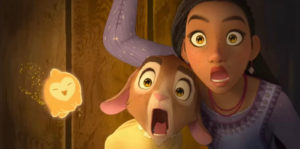
Let me start with the two good things about Wish. I love the pencil-drawn and watercolor art direction—very different and quite beautiful. The second is King Magnifico. We haven’t seen a true Disney Villain in a long time. Magnifico is evil and dastardly and suffers a fate worthy of a Disney Villain.
That said, there is a lot wrong with Wish, and to call it the movie worthy of 100 years of the Walt Disney Company is a travesty and an affront to Disney fans and Walt’s legacy. The trouble starts with the animation. Over the past 100 years, Disney animation has evolved. Yet, with Wish, it’s almost as if they fired the old guard of Disney Animation and threw away the manual (i.e., Frank Thomas and Ollie Johnson’s The Illusion of Life).
As someone who’s been watching Disney films for the last fifty years, I feel the overall animation is off…noticeably off. Head motions look weird when characters talk; they “squash and stretch” in inhuman ways. Characters move like the CG background characters of Hunchback of Notre Dame. It’s missing that Disney magic that brought line drawings and now CG wire-frames to life. There’s almost no comparison to any other film in the company’s catalog. Frame compositions are amateurish and look dull and bland from scene to scene.
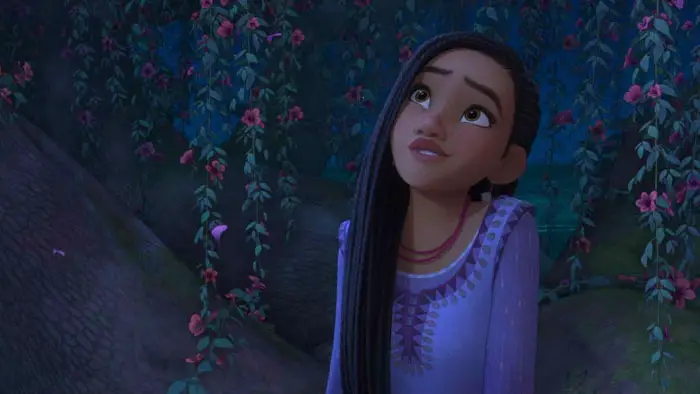
“…it’s almost as if they fired the old guard of Disney Animation and threw away the manual…”
Another disappointment is the music by Grammy Award nominated Julia Michaels and Benjamin Rice. Broadway composers score Disney musicals far better than pop music songwriters, and that’s true here. The music is competent, but unremarkable. What we want is to hum your songs on the way home, like the catchy and clever lyrics of Ashman and Menken or the beautiful ballads of Kristen Anderson-Lopez and Robert Lopez. Add the Sherman Brothers to the mix. The songs of Wish are structured like journal entries set to music. They are reflections upon a subject when they should be poetry.
The biggest misstep is the story itself. The narrative foundation is flawed between the concept of wishes and dreams. Someone once said, “A dream is a wish your heart makes.” King Magnifico wants everyone’s wish, which in reality is their life’s dream…to be a musician, to explore the world, that one day your prince would come. From a logical standpoint, there’s a disconnect that’s hard to overcome.
Then there’s Asha. The filmmakers describe her as “an activist.” Young children have bigger obstacles to climb in life than needing to become an activist. The problem with Asha is her goal is to defeat the King. She’s on a quest to “step into her power” but she experiences zero character development. She’s the same person from start to finish, except she fulfills her quest with the help of her mostly forgettable friends, who are diverse in skin color and body shape. In other words, Asha and company are perfect…and therefore dull.
Again, for a film meant to be a milestone for 100 years of the Walt Disney Company, Wish is a monumental failure. I’m sure audiences will feel good when Wish is over. With a tradition of films that inspire young children, this one will be forgotten. It’s as if Walt Disney and his legacy no longer matter anymore.
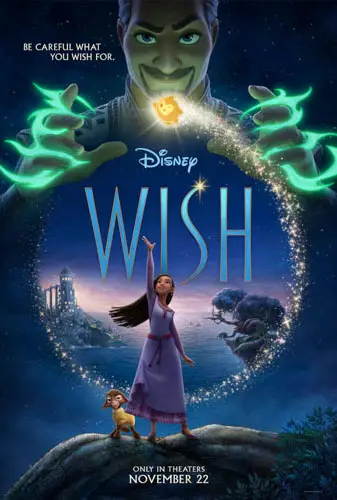
"…meant to be a milestone for 100 years of the Walt Disney Company, Wish is a monumental failure."
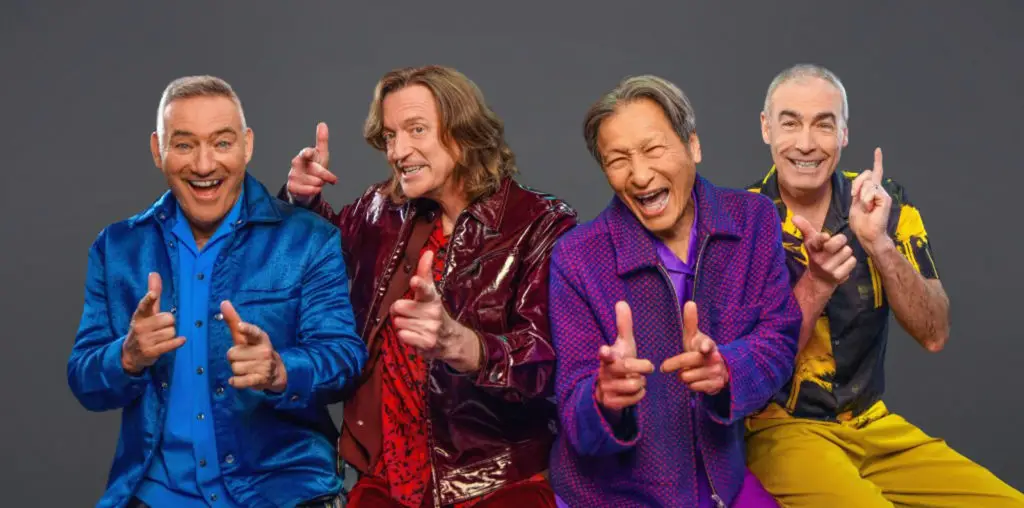
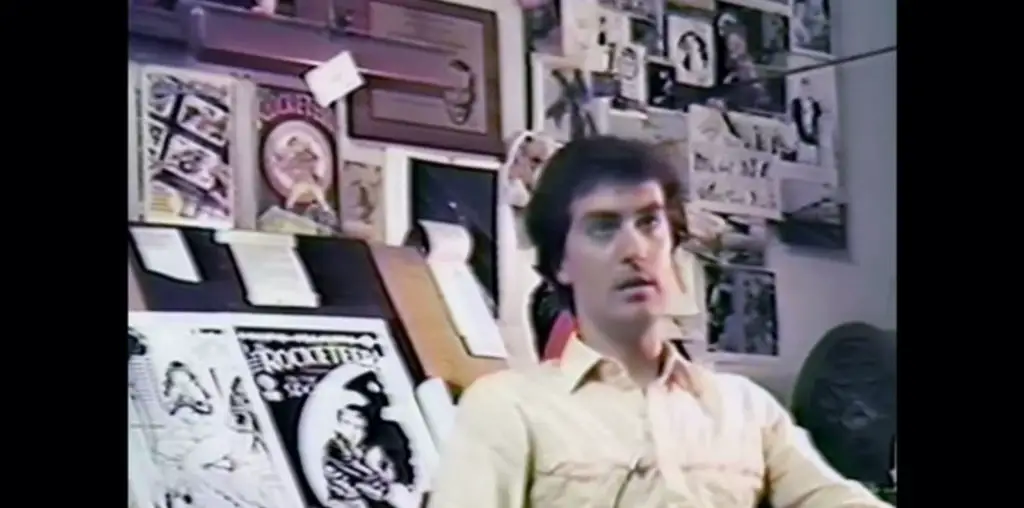
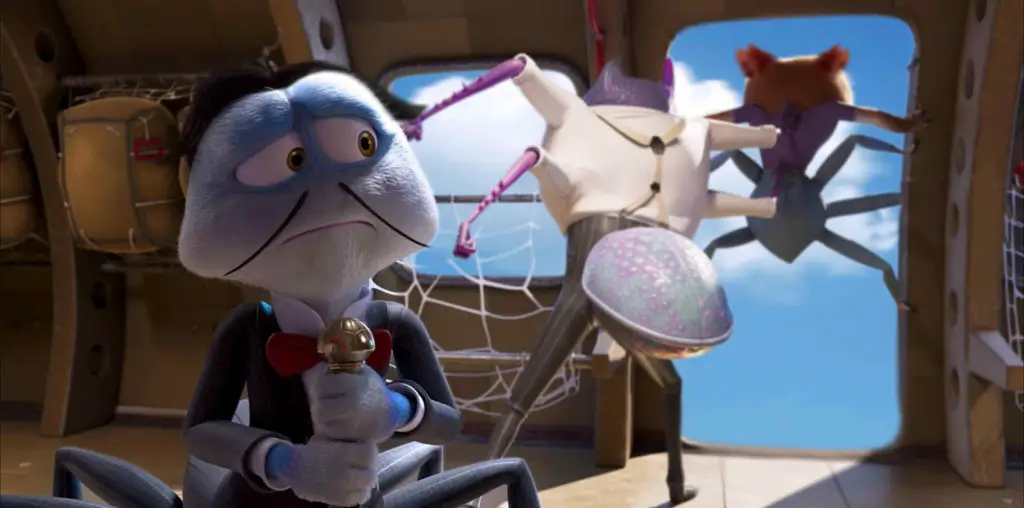
Saw Wish with my kids and we all enjoyed it. I didn’t recall the lead character calling herself an activist. She found out that the king was stealing people’s dreams, preventing them from achieving what they wanted to do. If Asha had been a straight, white male instead of brown woman with braids, I doubt that you would have the same issues. You’d see him as hero.
Also didn’t notice that there were people with different body shapes, etc. But, I also wouldn’t have cared because that’s how real people are in the real world and would expect to see that in a fantasy kids film for 2024’s USA or a global marketplace.
During a Q&A with the writers, directors, and cast, they all agreed that Asha was written as an activist.
[…] Ng’s scathing review, actual animators from inside Disney, current and former, reached out to Ng and Gore to express […]
I shall wait till “Wish” streams on Disney+, regardless of how good or bad it performs on the big screen.
[…] Disclaimer: This story is auto-aggregated by a computer program and has not been created or edited by filmibee.Publisher: Source link […]
Alan, why did you have a problem with the main character being gay in It’s a Wonderful Knife? Why does there have to be a reason for a gay character to exist in a movie, whereas the same doesn’t apply to straight characters? Why the DOUBLE STANDARDS? If the main character was straight, you wouldn’t have a problem with it.
I didn’t see Knife. I have no opinion about this film in particular. Pesonally I could care less. I think my issue is if you’re going to go out of your way to point out the character is gay and then do nothing with it down the road, why point it out at all. Characters don’t need to be declaring with sexual orientation for no reason other than virtue signaling.
By the way, check out my Bottoms review.
This is ridiculous. Some people are gay, bi, straight, whatever. A film doesn’t have to do anything with it. You clearly have a problem with gay people if you think mention that a character is gay equates to virtual signaling. If a character notes that she’s French or likes the Chicago Bears, is that virtue signaling or noting an element of that person?
It”s always fascinating to watch bigoted people in action who give themselves away by using “virtue signaling” when it’s clear that they don’t like things they object to LGBT+ people, feminism, etc.
Again, I didn’t see It’s a Wonderful Knife, so I have no comment about gay characters. There were also no gay characters in Wish, so I’m not sure where this is all coming from.